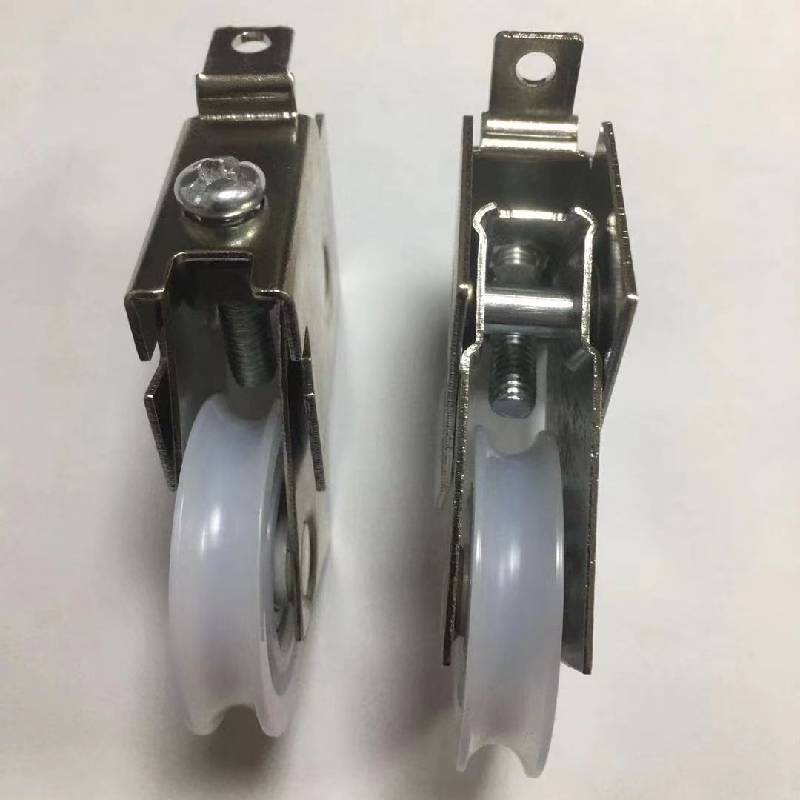Types of Sliding Door Rollers Explained for Various Applications
Understanding Sliding Door Roller Types A Comprehensive Guide
When it comes to sliding doors, the roller mechanism is a critical component that determines how smoothly and efficiently the door operates. Many homeowners often overlook the importance of sliding door rollers, but understanding their types can greatly influence performance, longevity, and ease of use. In this article, we'll explore various types of sliding door rollers, their features, and the best applications for each, to help you make an informed choice.
What are Sliding Door Rollers?
Sliding door rollers are small wheels or mechanisms that allow a sliding door to move along a track. The quality and type of roller can affect how easily the door slides, how much weight it can support, and how long it will last under regular use. Choosing the right roller for your sliding door is essential to ensure optimal performance.
Types of Sliding Door Rollers
1. Plastic Rollers Plastic rollers are one of the most common types used in residential sliding doors. They are lightweight and typically come at a lower cost. However, they are not as durable as other materials and may wear out more quickly, especially under heavy use. Plastic rollers are best suited for light or medium-weight doors where cost efficiency is a priority.
2. Steel Rollers Steel rollers offer durability and strength, making them ideal for heavy sliding doors. They are less prone to wear and can handle more weight than their plastic counterparts. While they may be noisier during operation, many high-quality steel rollers come with bearings that significantly reduce friction and noise. Steel rollers are an excellent choice for exterior sliding doors or other heavy applications.
3. Ball Bearing Rollers Ball bearing rollers provide smooth movement due to the ball bearings housed within their design. This type of roller is typically made from either plastic or steel, enhancing its performance. Ball bearing rollers are known for their longevity and quiet operation, making them suitable for both residential and commercial settings. They are particularly advantageous in environments where doors are frequently opened and closed.
sliding door roller types

4. Adjustable Rollers Adjustable rollers are designed to facilitate height adjustment, allowing users to fine-tune the door's position. This is particularly useful for doors that may have settled unevenly over time. Adjustable rollers can be either plastic or steel, and they are excellent for maintaining the alignment of the door, ensuring it operates smoothly and efficiently.
5. Cantilever Rollers Cantilever rollers are used mainly in heavy-duty applications. They have a unique design that supports the door from underneath, allowing for larger and heavier doors to slide effortlessly. These rollers are commonly found in commercial settings or large residential doors, such as patio sliders or barn doors.
Choosing the Right Roller
When selecting the appropriate sliding door roller, consider the following factors
- Weight of the Door Heavier doors require stronger materials, like steel or ball-bearing rollers. - Frequency of Use For heavily used doors, opting for ball-bearing or steel rollers will ensure longevity and smoother operation. - Noise Levels If noise is a concern, look for ball-bearing rollers, which provide quieter performance. - Adjustability If the door’s fit may need adjustment, choose adjustable rollers for convenience.
Conclusion
Understanding the different types of sliding door rollers is crucial for making a well-informed decision. Each type has its own unique benefits and ideal applications, so consider the specifics of your situation before making a choice. Investing in the right sliding door rollers can improve the functionality of your door, enhance its lifespan, and ultimately contribute to a smoother and more enjoyable experience in your space. Whether you're installing new doors or replacing old rollers, take the time to choose wisely for the best results.
-
Wrought Iron Components: Timeless Elegance and Structural StrengthNewsJul.28,2025
-
Window Hardware Essentials: Rollers, Handles, and Locking SolutionsNewsJul.28,2025
-
Small Agricultural Processing Machines: Corn Threshers, Cassava Chippers, Grain Peelers & Chaff CuttersNewsJul.28,2025
-
Sliding Rollers: Smooth, Silent, and Built to LastNewsJul.28,2025
-
Cast Iron Stoves: Timeless Heating with Modern EfficiencyNewsJul.28,2025
-
Cast Iron Pipe and Fitting: Durable, Fire-Resistant Solutions for Plumbing and DrainageNewsJul.28,2025
-
 Wrought Iron Components: Timeless Elegance and Structural StrengthJul-28-2025Wrought Iron Components: Timeless Elegance and Structural Strength
Wrought Iron Components: Timeless Elegance and Structural StrengthJul-28-2025Wrought Iron Components: Timeless Elegance and Structural Strength -
 Window Hardware Essentials: Rollers, Handles, and Locking SolutionsJul-28-2025Window Hardware Essentials: Rollers, Handles, and Locking Solutions
Window Hardware Essentials: Rollers, Handles, and Locking SolutionsJul-28-2025Window Hardware Essentials: Rollers, Handles, and Locking Solutions -
 Small Agricultural Processing Machines: Corn Threshers, Cassava Chippers, Grain Peelers & Chaff CuttersJul-28-2025Small Agricultural Processing Machines: Corn Threshers, Cassava Chippers, Grain Peelers & Chaff Cutters
Small Agricultural Processing Machines: Corn Threshers, Cassava Chippers, Grain Peelers & Chaff CuttersJul-28-2025Small Agricultural Processing Machines: Corn Threshers, Cassava Chippers, Grain Peelers & Chaff Cutters












